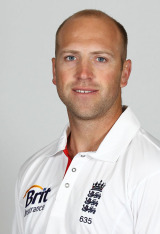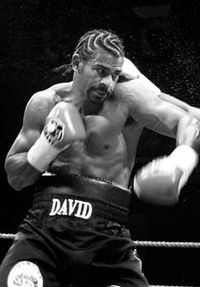England vs India in numbers
August 23, 2011 2 Comments
 No matter what the sport, England teams seem to specialise in being good but not quite good enough. In my lifeftime, I can count the number of times that England can justifiably claim to be top dogs rather than underdogs on the fingers of one hand. Having been born four years after England’s football World Cup triumph, there is the 2003 rugby union World Cup and the 2010 cricket World Twenty20. And that, as far as the major team sports are concerned, is that. Britain has had – and continues to boast – its fair share of world/Olympic champions and world-class practitioners in individual events: Sebastian Coe, Daley Thompson, Jessica Ennis, Ben Ainslie, Lennox Lewis, Nigel Mansell, Chris Hoy and Mark Cavendish to name but a few. But when it comes to putting eleven (or six, or 15, or whatever other number) athletes together against the league of nations, the cupboard has remained steadfastly bare.
No matter what the sport, England teams seem to specialise in being good but not quite good enough. In my lifeftime, I can count the number of times that England can justifiably claim to be top dogs rather than underdogs on the fingers of one hand. Having been born four years after England’s football World Cup triumph, there is the 2003 rugby union World Cup and the 2010 cricket World Twenty20. And that, as far as the major team sports are concerned, is that. Britain has had – and continues to boast – its fair share of world/Olympic champions and world-class practitioners in individual events: Sebastian Coe, Daley Thompson, Jessica Ennis, Ben Ainslie, Lennox Lewis, Nigel Mansell, Chris Hoy and Mark Cavendish to name but a few. But when it comes to putting eleven (or six, or 15, or whatever other number) athletes together against the league of nations, the cupboard has remained steadfastly bare.
However, England’s remarkable 12-month rise from fifth to first in the Test rankings was confirmed with victory at Edgbaston two weeks ago and underlined emphatically with a second successive innings victory at The Oval yesterday, completing a 4-0 whitewash over the former world leaders India. Defending that top ranking will be difficult – indeed South Africa have the opportunity to jump into top spot before England before play again in Sri Lanka next March – but that does not diminish the cause for celebration or the pride I feel in a team which for so many years has wallowed in mediocrity (and sometimes worse).
Here is the story of how England displaced India as the number one Test side in the world – in numbers. (For a more comprehensive view on what this series win means to England cricket fans, read Chris’s post here.)
The series in numbers
First Test, Lord’s (July 21st-25th): England 474/8 dec (Pietersen 202*, Kumar 5/106) & 269/6 dec (Prior 103*, Sharma 4/59) beat India 286 (Dravid 103, Broad 4/37) & 261 (Raina 78, Anderson 5/65) by 196 runs.
Second Test, Trent Bridge (July 29th-August 1st): England 221 (Broad 64, Kumar 3/45) and 544 (Bell 159, Kumar 4/124) beat India 288 (Dravid 117, Broad 6/46) & 158 (Tendulkar 56, Bresnan 5/48) by 319 runs.
Third Test, Edgbaston (August 10th-13th): England 710/7 dec (Cook 294, Morgan 104) beat India 224 (Dhoni 74, Broad 4/53, Bresnan 4/62) & 244 (Dhoni 74*, Anderson 4/85) by an innings and 242 runs.
Fourth Test, The Oval (August 18th-22nd): England 591/6 dec (Bell 235, Pietersen 175) beat India 300 (Dravid 146) & 283 (Tendulkar 91, Swann 6/106) by an innings and 8 runs.
The teams in numbers
4 – England posted the four highest innings totals in the series, passing 450 on each occasion.
1 – Conversely, India scored 300 only once in their eight innings – recording exactly 300 in the opening innings of the final Test, after which they were still forced to follow on.
710 – Highest innings score (for 7 declared), by England in the 3rd Test at Edgbaston. It was their third-highest Test total ever, and their highest against India.
158 – Lowest innings total, by India in the 2nd Test at Trent Bridge.
80 – England claimed all 80 Indian wickets during the series, versus just 47 for India.
2 – Number of times which India bowled England out (in both innings at Trent Bridge). England declared four times and only needed their second innings twice.
3 – India‘s margin of defeat in the third Test (an innings and 242 runs) was their third-worst ever.
Batting in numbers
6– Despite batting two times fewer (six innings versus eight), England had seven of the top ten run-scorers in the series.
5 – England batsmen posted the five highest individual scores of the series – one by Alastair Cook, and two each by Kevin Pietersen and Ian Bell. All three recorded double centuries.
533 – Pietersen was the leading run-scorer in the series, with 533 runs at an average of 106.60.
294 – Cook had the highest individual score of the series, 294 at Edgbaston. As a team, India exceeded this total just once.
461 – Rahul Dravid was India’s top batsman with 461 runs, at an average of 76.83.
3 – Dravid was India’s only century-maker, registering tons in the first, third and fourth Tests.
3 – Dravid also became only the third Indian batsman to carry his bat in a Test innings (after Sunil Gavaskar and Sachin Tendulkar), scoring an unbeaten 146 in India’s first innings at The Oval. He had to come straight back out again as England enforced the follow-on.
7 – England batsmen recorded seven centuries to India’s three.
3 – Number of England batsmen who scored at least 300 runs in the series (Pietersen, Bell, Cook) versus just one for India (Dravid).
8 – Number of batsmen who averaged 40 or more in the series. With the exception of Dravid, all were English.
350 – The third wicket stand of 350 between Bell and Pietersen at The Oval was the highest partnership of the series.
12 – There were 12 century partnerships during the series, 10 of them by English batsmen.
34.12 – Batting average of Sachin Tendulkar, well below his career average of 56.25. He fell nine runs short of what would have been his 100th international century at The Oval.
59.76 – England’s average runs per wicket during the series, more than double India’s average of 25.55.
70 – Pietersen scored more boundaries than any other batsman in the series (68 fours, two sixes).
3 – Eoin Morgan was dismissed for a third-ball duck in England’s first innings of both the first and second Tests. He made up for it by scoring a century in the first innings of the third Test, however.
2 – Virender Sehwag recorded a king pair at Edgbaston – out first ball in both innings.
Bowling in numbers
25 – Number of wickets taken by Stuart Broad, the most on either side, and ten more than the leading Indian Praveen Kumar. (Broad also added 182 runs with the bat.)
6 – Number of bowlers who took 10 or more wickets in the series. Four were English, including the top two wicket-takers, Broad and Tim Bresnan (16).
5 – Number of times a bowler took at least five wickets in an innings. Four of these were by an English bowler (Broad, Bresnan, Jimmy Anderson, Graeme Swann).
2 – Bowlers captured six wickets in a single innings on two occasions, both Englishmen: Broad and Swann.
1 – Hat-tricks in the series, by Broad at Trent Bridge. It was the first time a bowler has ever taken a hat-trick in a Test against India.
29.5 – Kumar took a wicket every 29.5 balls, the best strike rate among regular bowlers in the series. Bresnan and Broad were not far behind, with impressive strike rates of a wicket every 34.3 and 36.3 balls respectively.
3 – Three of England’s bowlers (Bresnan, Broad, Anderson) averaged fewer than 30 runs per wicket. Only one Indian (Kumar) did.
58.18 – Other than Kumar, among India’s specialist bowlers Ishant Sharma had the second-best bowling average – his 11 wickets cost a whopping 58.18 runs apiece.
143.5 – Harbhajan Singh, for so long India’s primary spin threat, took just two wickets in his two matches at an average of 143.5.
And finally, a few other numbers
1 – England are now the number one country in Test cricket.
5 – England’s ranking 12 months ago.
17 – England wicketkeeper Matt Prior claimed 17 dismissals in the series (16 catches, one stumping). His counterpart M S Dhoni took 13 catches.
5 – Cook and Andrew Strauss led among other fielders with five catches each.
11 – India have now lost 11 out of 16 Tests at Lord’s.
7 – England’s 4-0 victory marks only the seventh time in their history they have won a series by four matches or more.
6 – This was India’s sixth series defeat by four or more matches, and their first since their tour of Australia in 1991/92.




























 Sports News 24/7
Sports News 24/7
